News
Rotary cleans Kikuubo, a slum of struggles and resilience
“That is why rubbish ends up in trenches, blocking drainage and worsening floods,” says William Kalule, Buganda’s area chief. “Cleaning here is not a city service; it is only done during Bulungi Bwansi [community clean-ups].”
Members of Rotary Club of Kanyanya (ROCK) clean water trenches during general cleaning of Kikuubo Zone, one of the five villages making up Kanyanya Parish in Kawempe Division, Kampala.
By: Geofrey Kulubya, Journalists @New Vision
Away from Kikuubo – the bustling wholesale hub in downtown Kampala – lies another Kikuubo, hidden along Gayaza Road in Kawempe Division. Unlike its namesake, this Kikuubo is a congested slum battling poor housing, unsafe water, inadequate sanitation, unemployment, and grinding poverty.
Even the relatively better-off are not much better off. Most homes tap electricity informally through unlicensed wiremen known as kamyufu. These risky connections have caused deaths, yet many residents opt for them because they are cheap and accessible.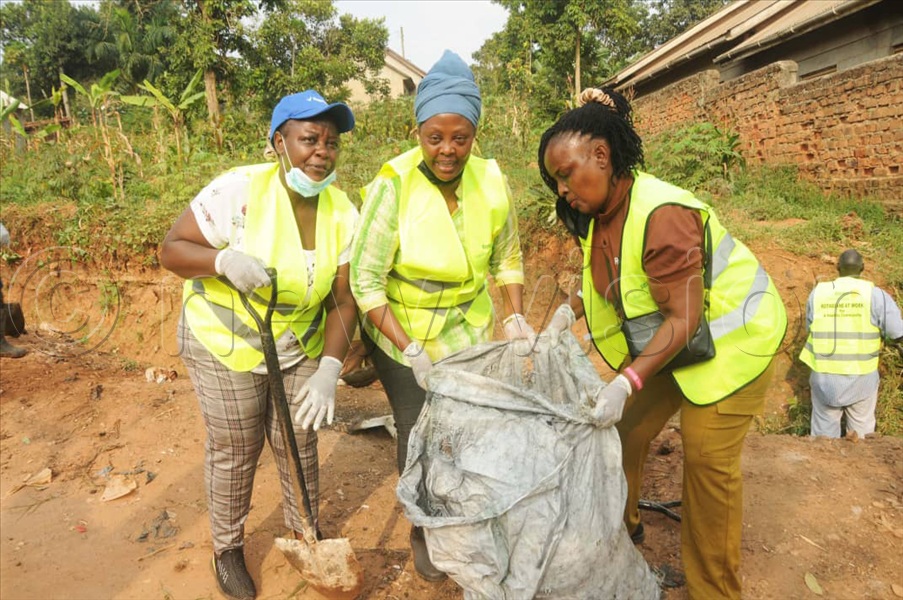
Members of the the Rotary Club of Kanyanya (ROCK) during general cleaning of Kikuubo Zone, one of the five villages making Kanyanya parish in Kawempe Division, Kampala.
With an estimated 15,000 residents, Kikuubo borders Mpererwe trading centre and Makerere University staff quarters at Katalemwa. Much of the land belongs to Makerere and the Buganda Queen Mother (Namasole), but most residents are squatters in a valley originally meant for stormwater collection.
When rains come, clogged trenches overflow, flooding homes and turning narrow paths into filthy streams.
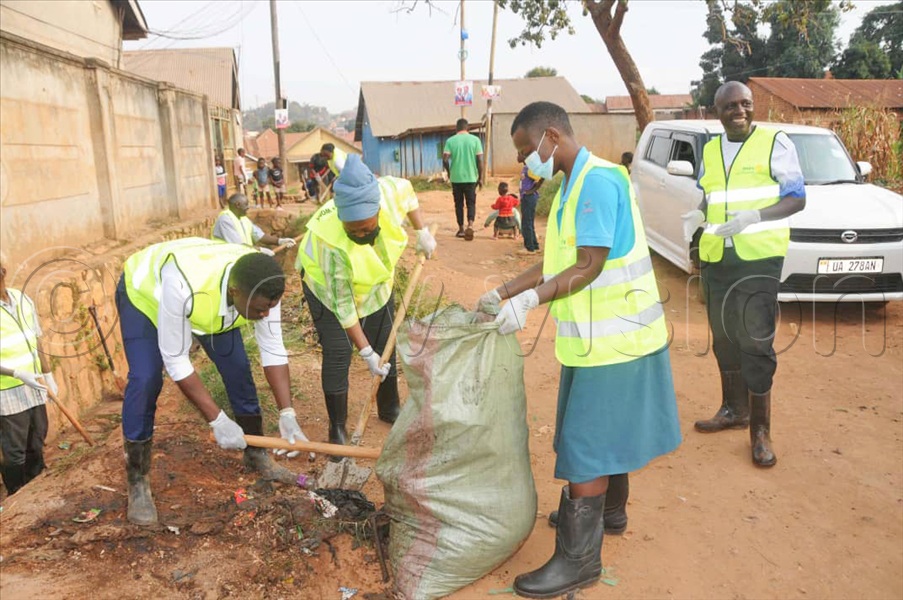
Homes here are typically single-room structures squeezed on 20×20-foot plots, often with pit latrines perched over swampy ground. When floods strike, sewage and garbage wash into walkways. Yet amid the stench, the community remains vibrant.
Traders set up stalls at dawn, food vendors hawk their goods, and children troop into improvised classrooms.
The absence of proper city services forces residents to improvise. Garbage collection is run by private firms that charge Shs15,000–20,000 per household each month – a fee many cannot afford.
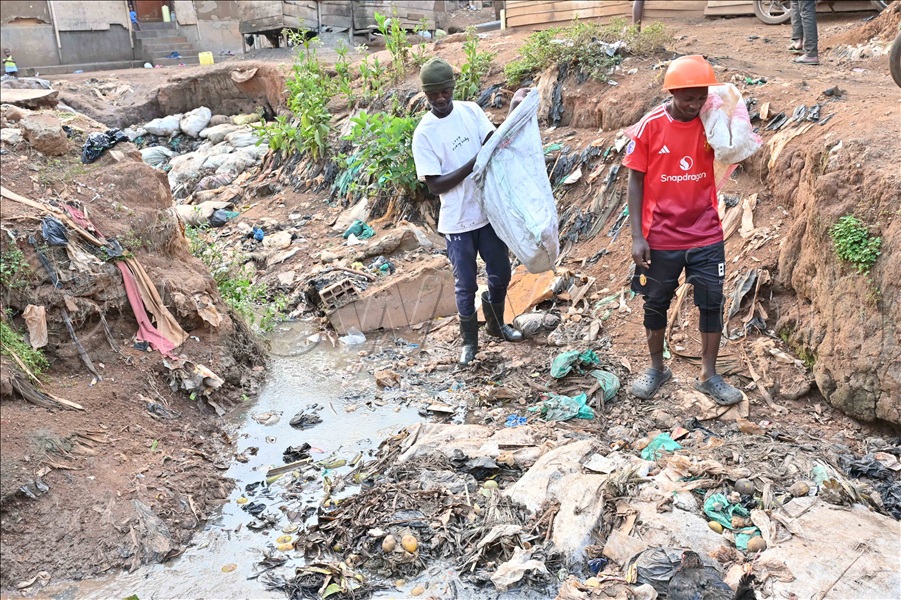
“That is why rubbish ends up in trenches, blocking drainage and worsening floods,” says William Kalule, Buganda’s area chief. “Cleaning here is not a city service; it is only done during Bulungi Bwansi [community clean-ups].”
To bridge the gap, the Rotary Club of Kanyanya (ROCK) recently organised a major clean-up, led by Club President Rtn. Dan Mazinga. Partnering with Kabaka’s local representatives (abaami) and LC leaders, Rotarians unclogged trenches and mobilised residents in a show of unity.
The effort comes ahead of Rotary District 9213 Governor Geoffrey Kitakule’s visit on September 16th. His tour will spotlight Kikuubo’s needs, which cut across all Rotary’s seven areas of focus – from water and sanitation to education, health, environment, and economic development.
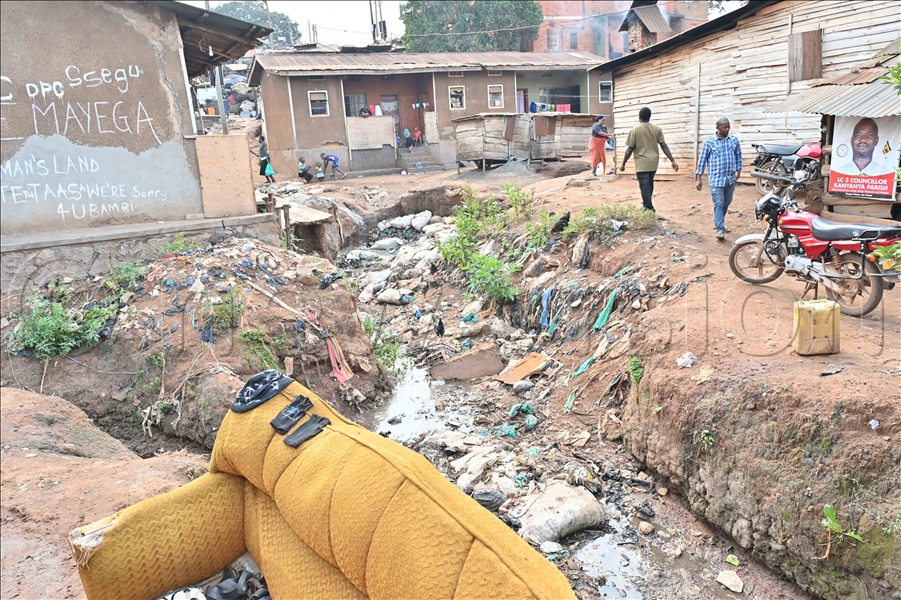
The visit is expected to draw more partners to support ongoing efforts.
Kikuubo’s challenges are not new. The late Kawempe North MP Muhammad Segirinya frequently staged clean-up drives here, sometimes attracting more cameras than solutions. His efforts, though visible, barely scratched the surface.
Survival in Kikuubo often relies on creativity. Youngsters ferry jerrycans of water from a spring borehole using bicycles and wooden carts, while others collect plastic bottles for recycling at sh1,000 a kilo.
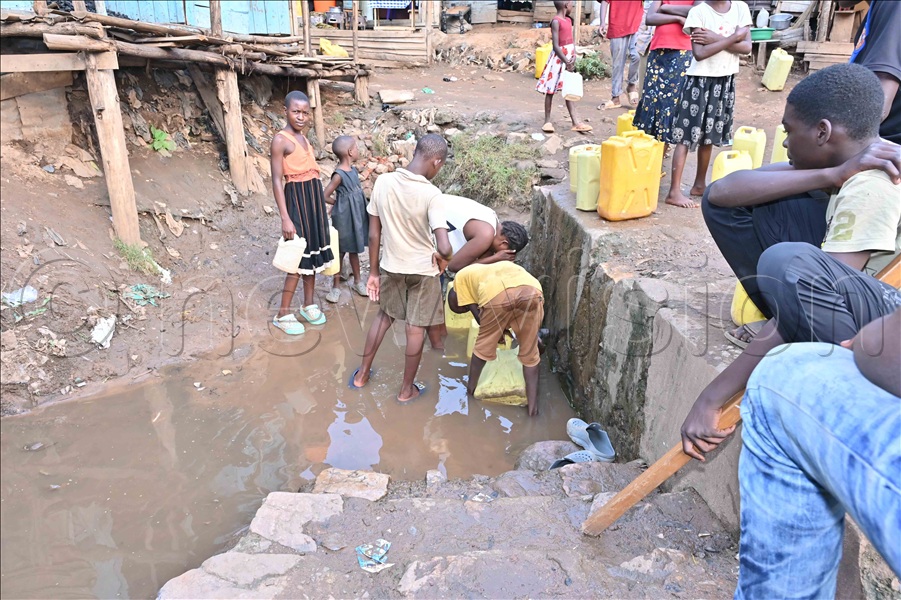
During floods, families pile sandbags at doorways or elevate pit latrines to keep sewage out.
Despite its hardships, Kikuubo is buzzing with life. Grocery stalls sell matooke, fish, and fresh produce. Churches and mosques gather the faithful. Tailors, carpenters, salons, and kiosks serve a steady stream of customers.
Children’s laughter echoes in makeshift schools and playgrounds, even though many miss out on education due to the heavy burden of rent, food, and medical bills.
Yet the risks are real. Floods have swept away children. Waterborne diseases thrive in stagnant trenches.
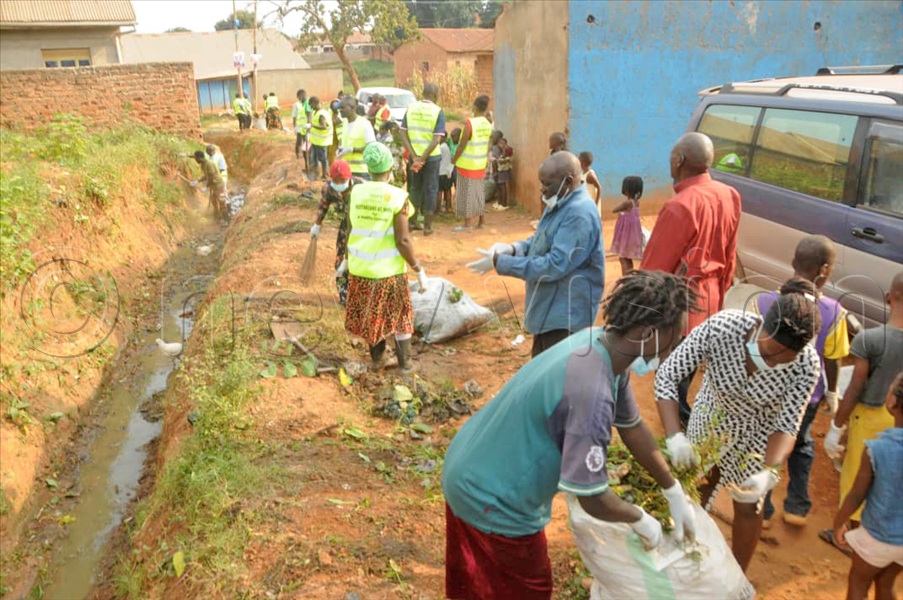
Congestion fuels insecurity and crime. Families are caught in a vicious cycle: unsafe housing denies them electricity and piped water; floods expose them to disease; treatment drains scarce income; and poverty deepens.
Breaking that cycle requires urgent and coordinated action. Kikuubo needs investment in youth skilling, sanitation, clean water, education, health, and livelihoods. With support, the slum can transform from a place of mere survival into a community of resilience, dignity, and opportunity.
For now, Kikuubo stands as both a warning and a beacon – a warning of what unchecked urban neglect can breed, and a beacon of the human spirit that continues to fight, endure, and hope.